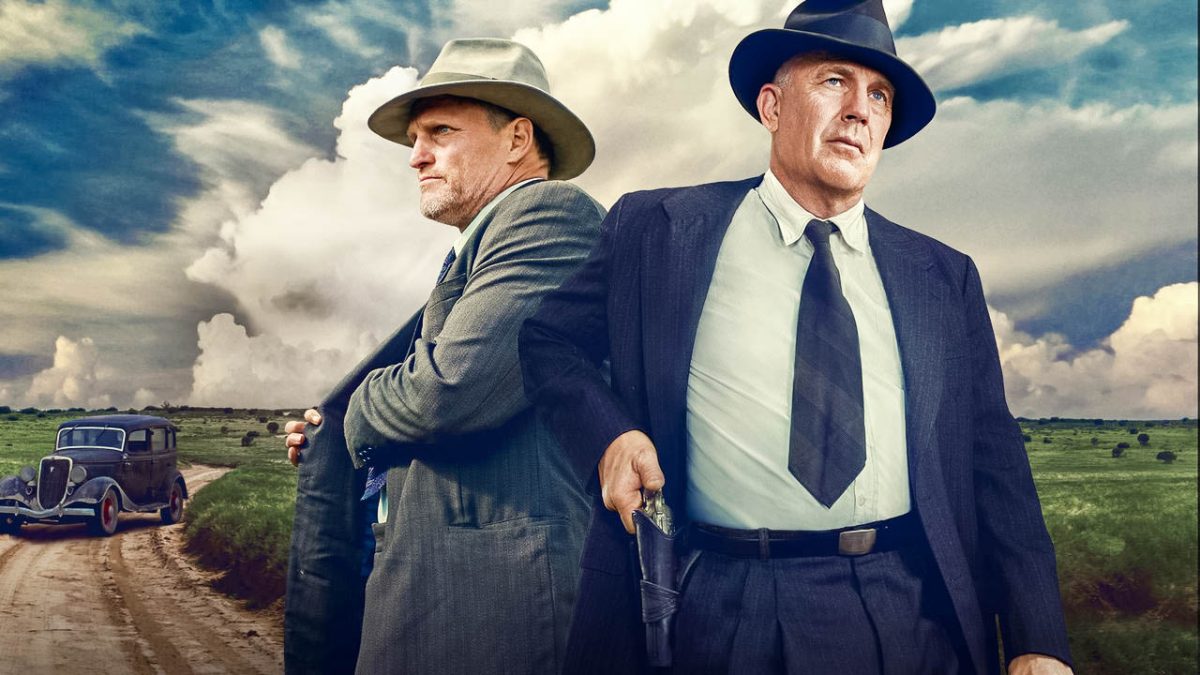In 1967, Arthur Penn’s film “Bonnie and Clyde” captured the American obsession with the infamous lovers on the run and cemented the cultural narrative of their legacy.
Bonnie and Clyde’s youthful freedom depicted on the big screen resonated with Americans across the country and has placed Penn’s film among the classics of the era. However, John Lee Hancock’s latest film, “The Highwaymen,” attempts to provide a counternarrative to the Bonnie and Clyde story by choosing to depict the duo of Texas Rangers, Frank Hamer and Maney Gault, that tracked and killed the criminal couple.
Despite Hancock’s creative decision to depict the “lawful” side of the Bonnie and Clyde story, his film succeeds only in raising more questions about the ambiguity of law enforcement, rather than the struggle between good and evil. Hancock has no issue proposing counterpoints to the media’s obsession with criminals, but his overt attempt to undermine this cultural phenomenon proves his inability to assess the story objectively. Each beat of the film panders directly to the blind conservative support of law enforcement officers.
The film picks up the Bonnie and Clyde story toward the end of their infamous run from law enforcement. Hamer and Gault — played by Kevin Costner and Woody Harrelson — are recruited by Texas Governor “Ma” Ferguson (Kathy Bates) to hunt down and kill the criminal duo. Hancock quickly passes directly over the apparent issues of state-sanctioned murder, and while he reminds the audience in a few more scenes throughout the film that Hamer and Gault are essentially hired killers, he never dissects this obvious moral contradiction.
Hancock’s film presents many issues in his determination to pander to his obvious audience, but he will no doubt lose that very audience with his lack of filmmaking ability. The narrative struggles to keep its audience engaged throughout the runtime, and beyond the exposition of the story and the introduction of the characters, the story is tedious and overlong. Each scene is injected with groan-inducing dialogue and forced, unnecessary conflict that adds excessive length to an already dull film.
The movie is not short of acting talent by any means. However, Bates is entirely underutilized and is severely limited by her lack of screen time. Still, the most surprising aspect of this film is the lack of screen chemistry between Costner and Harrelson. Both are fantastic actors in their own right, but they fail to provide the audience with a believable friendship on screen together.
“The Highwaymen” is yet another example of a project that Netflix resurrected and pumped an unnecessary amount of money into. Hancock’s past work and his apparent conservative pandering is on full display throughout the runtime, and with the outrageous $50 million budget that Netflix provided him, it’s no surprise that this is another failed project.
Hancock had the opportunity to offer a sharp critique of the American obsession with criminals, but he merely depicted the opposite end of the spectrum. In the current polarization of cultural and political opinions, this film’s existence is no surprise.
Cole Fowler is an English junior and columnist for The Battalion.
‘The Highwaymen’ is tedious
April 4, 2019
Photo by Creative Commons
Woody Harrelson and Kevin Costner star as Texas Rangers hunting down Bonnie and Clyde in Netflix’s “The Highwaymen.”
Donate to The Battalion
Your donation will support the student journalists of Texas A&M University - College Station. Your contribution will allow us to purchase equipment and cover our annual website hosting costs.





















